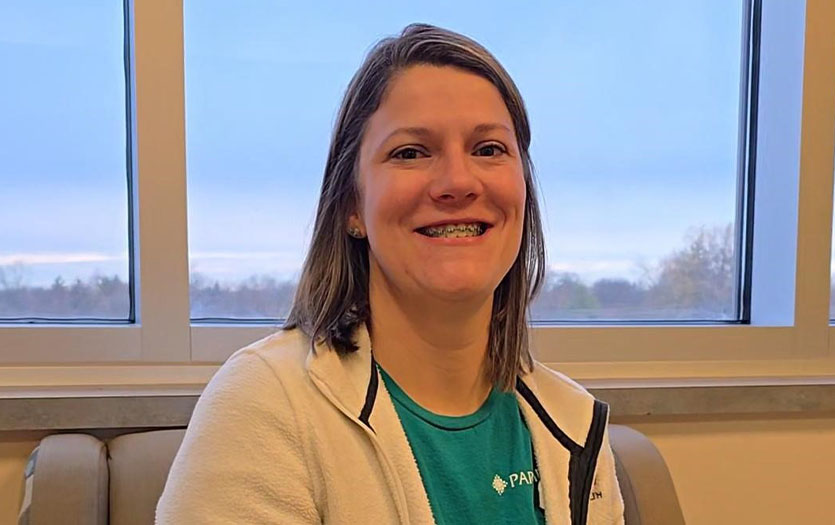
The death of a baby impacts not just that child’s family, but the entire community. It’s not surprising, however, that the death emotionally affects the child’s parents most acutely. How can you, as a friend or neighbor, best support families through the heartache? It can be difficult to know what to say and worrisome to think you might do something unintentionally hurtful.
Cori McKenzie, maternal child bereavement coordinator, Parkview Health, answers some of the questions you might be scared to ask. Her responses will help you understand why this type of loss is unique, how parents experience the loss, and what you can do to be supportive.
What makes the death of a baby or loss of a pregnancy different than other types of losses?
A pregnancy loss or the death of a baby is the loss of a parent’s hopes and dreams for the future. As we grow and age, we anticipate that we will lose loved ones, but not our children. Losing a child upsets the natural order of how we anticipate life will unfold. I’ve found that it doesn’t matter how long someone has been pregnant or known about the baby – they have already been thinking about how this child will fit into the family – so when the baby dies, those dreams die, too.
Tell me more about what you mean by “dreams dying”?
Families grieve not only the physical loss of the child, but also the things they will never get to experience. Things like sending their child to school on the first day of kindergarten and watching them at their dance recitals. There won’t be driving lessons or a wedding day. They’ll never share a room with a sibling. Those things are gone, too, before they ever had a chance to happen.
What are some good ways to support families who have experienced a loss?
Supporting a family doesn’t have to be complicated. Simply being present and open to talking about the child who has died can go a long way. Call the baby by name if you have the opportunity. Many people get nervous about bringing up the death because they think it will make the parent upset or cry, but in reality, the child is never far from the families’ thoughts. Having a safe person to talk to about the child is helpful.
What should I avoid doing or saying?
Don’t ignore the situation or offer platitudes. A response that starts with “at least” is not a great choice because it minimizes the parent’s experience. Avoid statements like “It happened for a reason” or “They are in a better place now.” To a parent, the situation doesn’t make sense and the best place for their baby is in their arms. It also isn’t helpful to say that you know what they are going through because every individual has their own unique experience.
It seems that with pregnancy and infant loss, the mother is often the center of concern because she is carrying the baby and obstetrical care focuses on her. How does this affect dads?
For the person carrying the baby, the pregnancy typically feels “real” sooner. The mother may know baby’s sleep routine and has felt movements consistently, but for dad, their physical connection with their baby is more limited. For dad, the reality often sets in when the baby is born. In some cases, they feel like they are meeting their baby and grieving their baby all at the same time.
What are some good ways to support grieving fathers?
Provide dads space where they don’t need to be the “strong one.” Our culture often expects men to be tough and it’s important to acknowledge how difficult the situation is for them, too. If you are giving mom a gift, also consider what might be meaningful for dad. For example, planting a tree in honor of baby includes both parents.
If you are interested in learning more about supporting families through the death of a baby, please join us on July 21, 2022, noon – 1 p.m., for a virtual Q&A with local father and author, Kavin Ley. Kavin’s book Asher My Son: A Year in the Life of a Childless Father chronicles his grief journey following the death of his son. Through better understanding families’ experiences, we’ll be able to better support them through the heartache. Register here.



